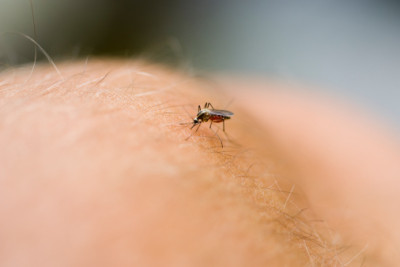The Greene County Health Department is seeking the public’s assistance for annual monitoring of West Nile Virus.
Health Department Director Molly Peters says that monitoring and surveillance begins on Sunday: “Every year we put out surveillance to monitor mosquitoes to see if there are positive cases of West Nile Virus in pools of mosquitoes. Those little vector bins are located throughout the community. We set those out and we’ll collect mosquitoes from May 15th to October 15th. We report any positive cases of West Nile Virus in those pools of mosquitoes to the community and the state. If there are positive pools, it’s more likely that West Nile Virus can exist in humans. It’s an awareness throughout the community, and as we get to drier temperatures and hot days, it would be more likely that we’ll see West Nile Virus occur.”
Traditionally, as Spring moves to Summer, it becomes primary breeding season of the Culex pipiens or common house mosquito, which is the primary transmitter of West Nile Virus.
Peters says where the help from the public comes in is through the collection of dead birds. Peters says people should contact the Health Department at 217-942-6961, extension 102 if they have a fresh dead bird on their property that died by itself, has not decomposed, and did not present an obvious cause of death (i.e. crush, shot, or killed by a car): “It’s important to contact the health department within 24 hours of finding the dead bird. Then, we will instruct you on what to do with that dead bird and we will come and collect it. If there is a need to pick it up, we do put it in the freezer and maintain it, and then it gets tested for West Nile Virus to see if it’s in birds as well.”
Appearance of West Nile Virus usually occur within species of “perching birds” in addition to crows, blue jays, robins, cardinals, catbirds, mockingbirds, sparrows, finches, flycatchers, swallows, warblers, wrens, small or medium sized hawks, and owls. The birds are then sent off to the Veterinary Diagnostic Laboratory at the School of Veterinary Medicine at the University of Illinois Champaign-Urbana for testing.
Peters says to reduce any possibility to catch West Nile Virus that people should eliminate all ponding or pooling of stagnant water and weekly change out water collectors like bird baths, pet water bowls, and pools.




